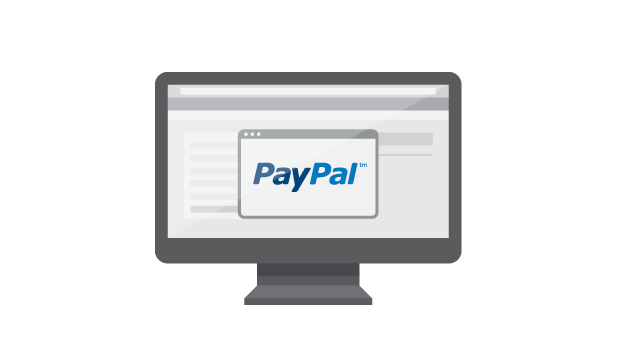Have you ever tried to send money to a friend or family member in Zimbabwe? Or perhaps, you’ve wanted to make an online purchase from a store based in Zimbabwe? If you’re like many individuals dealing with international transactions, the lack of widely accepted payment options can be a significant roadblock. While the world embraces online payment giants like PayPal, questions about its functionality in Zimbabwe often arise. Is PayPal available in Zimbabwe? This question can elicit a complex answer, depending on your perspective and specific needs.

Image: briefly.co.za
This article delves into the nuances of using PayPal in Zimbabwe, exploring its availability, limitations, and potential alternatives. We’ll examine the factors that have influenced PayPal’s presence in Zimbabwe, analyze the impact of its restricted functionality, and offer insights into the evolving digital payment landscape within the country. Understanding these intricacies will equip you with the knowledge to navigate the financial challenges and embrace opportunities for seamless online transactions in Zimbabwe.
The Complex Story of PayPal in Zimbabwe
While PayPal boasts a global reach, its presence in Zimbabwe has been characterized by a series of complexities. While it’s possible to register a PayPal account using a Zimbabwean email address and phone number, the real limitations arise when trying to link a local bank account or withdrawing funds.
The Role of Currency Regulations
Zimbabwe has endured a challenging economic history, leading to a unique set of currency regulations. The Zimbabwean dollar (ZWL) is not directly supported on the PayPal platform. This means users can receive funds in other currencies like USD, EUR, or GBP but converting them to ZWL can be a complicated process. The availability of foreign currency exchanges may influence the ease of converting funds back into the local currency. While many Zimbabweans utilize foreign currencies for international transactions, the lack of direct ZWL support makes PayPal’s functionality limited.
Dealing with Sanctions and Restrictions
The impact of international sanctions on Zimbabwe has also played a role in restricting PayPal access. These sanctions have often targeted financial institutions, making it difficult for them to engage with global payment processors like PayPal. The complex interplay between sanctions and financial regulations creates a challenging environment for seamless online transactions. While individuals can often bypass these restrictions, businesses operating within Zimbabwe may face more significant hurdles.

Image: www.techzim.co.zw
Navigating the Limited Functionality of PayPal
Despite its accessibility, PayPal’s functionality in Zimbabwe is significantly limited. Here’s a breakdown of what you can do and what you can’t:
What You Can Do with PayPal in Zimbabwe
- Receive Payments: You can receive payments in supported currencies like USD, EUR, or GBP from senders outside of Zimbabwe.
- Send Payments: You can send payments to individuals or businesses in other countries using a debit or credit card linked to your account.
- Shop Online: While not all stores accept PayPal, some international retailers may allow you to use your PayPal account to make purchases.
What You Can’t Do with PayPal in Zimbabwe
- Link a Local Bank Account: You can’t directly link a Zimbabwean bank account to your PayPal account.
- Withdraw Funds to a Local Bank Account: You can’t withdraw funds directly to a Zimbabwean bank account.
- Transfer Funds to Other Zimbabweans: You can’t transfer funds to other PayPal users within Zimbabwe.
Alternatives and Solutions for Seamless Transactions
Given the limitations of PayPal, it’s crucial to explore alternative payment solutions tailored to Zimbabwe’s unique environment.
Embracing the Rise of Mobile Money
Mobile money platforms have become increasingly popular in Zimbabwe, providing a secure and convenient way to conduct financial transactions. Platforms like EcoCash, Telecel Money, and NetOne Money offer a wide range of services, including:
- Person-to-Person Transfers: Sending and receiving money to other users via mobile phone.
- Merchant Payments: Making payments at stores and businesses.
- Bill Payments: Paying utility bills and other services.
- Airtime Top-Up: Recharging mobile phone airtime.
The widespread adoption of mobile money has significantly transformed Zimbabwe’s financial landscape. It offers a convenient, cost-effective, and accessible alternative to traditional banking, particularly for those without a bank account.
Exploring Other Digital Payment Platforms
Beyond mobile money, Zimbabweans can explore other digital payment options.
- Wise (formerly TransferWise): Wise is a global money transfer service that offers fast and low-cost transfers to various countries, including Zimbabwe. You can send money to local bank accounts and even receive payments via their Wise account.
- Flutterwave: Flutterwave is a pan-African payment gateway that enables seamless online transactions within and beyond the continent. It allows businesses and individuals to receive and send payments, process transactions, and manage finances more easily.
- Local Payment Gateways: Some local companies have emerged catering to Zimbabwe’s specific payment needs. These platforms often collaborate with international partners and may provide alternatives to international payment processors.
The Evolving Digital Payment Landscape in Zimbabwe
The digital payment landscape in Zimbabwe is constantly evolving. With the growing adoption of smartphones and increasing internet penetration, the demand for efficient and secure online payment solutions is rising. While PayPal still has limitations, the emergence of alternative platforms and the ongoing financial reforms in Zimbabwe are paving the way for a more robust digital payments ecosystem.
Government Initiatives and Regulatory Frameworks
The government plays a critical role in shaping the future of digital payments. Zimbabwe’s authorities are actively working to establish a regulatory framework that encourages innovation and safeguards consumer interests. They are streamlining processes for payment processors and fostering a more conducive environment for secure online transactions. The government’s commitment to developing a robust digital economy will undoubtedly impact the availability and functionality of platforms like PayPal in the future.
Embracing the Future of Online Transactions
As Zimbabwe continues to embrace the digital transformation, it’s crucial to stay informed about the latest developments in payment technologies. This includes exploring new payment tools and adapting to evolving regulations.
Is Paypal Available In Zimbabwe
Conclusion
While PayPal’s functionality in Zimbabwe remains somewhat limited, the country’s dynamic digital payment landscape offers diverse alternatives. Mobile money platforms have dramatically reshaped the financial landscape, providing convenience and accessibility to a wide range of users. As Zimbabwe continues to evolve its digital ecosystem, we can expect more innovative solutions to emerge, bridging the gaps in traditional payment methods and facilitating seamless online transactions for individuals and businesses alike.







